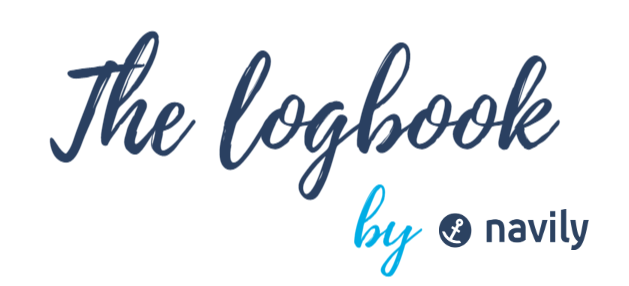
The Octopus is pleased to present its new blog partner, Ailerons! Ailerons is an NGO composed of citizens united around the same mission: the study and conservation of sharks and rays in the Mediterranean Sea.
We will work side by side to inform you about these species that are of paramount importance for the biological balance of our seas,oceans and the whole living world! We will also give you the opportunity to engage for their protection through numerous participatory missions!
Today, we present Ailerons, its history, its “raison d’être” and the many projects undertaken by the association to study and protect Mediterranean sharks and rays!
Ailerons : On a mission for sharks and rays in the Mediterranean

AILERONS is a non-profit scientific association created in May 2006 in Montpellier (Hérault, France). It is through the collective action of volunteer scientists, students, volunteers from all walks of life and with the help of all people on the sea (fishermen, managers, associations, boaters etc.) that AILERONS carries out its projects.
Its main objectives are the study and conservation of Mediterranean sharks and rays.
Since 2012, the AILERONS association has been committed to the study and protection of the giant devilray via the project of the same name. the objective is to preserve this remarkable Mediterranean species which is threatened with extinction and for which, unfortunately, few actions exist to date. Factually in danger of extinction, scientists note that the species is regressing in its area of distribution. It is therefore urgent to act!

Their commitment: the study and conservation of Mediterranean sharks and rays.
Their commitment to this objective and the associated actions have intensified in 2019 with scientific expeditions and more targeted and effective communication operations towards our community, scientists, natural area managers, associations, sea professionals and globally the general public.The AILERONS association works to improve knowledge and protection of Mediterranean rays and sharks.

The current lack of knowledge and the poor image of these species are preventing the implementation of management measures or plans. Yet Mediterranean shark and ray populations have never been so threatened!
Consisting of a multidisciplinary team of enthusiasts, students and scientists, AILERONS carries out various scientific, educational and participatory science projects on a voluntary basis.

Conferences, stands, interventions in schools, popularization, sea trips, the AILERONS association offers various activities throughout the year where everyone can participate in the way that suits them.
The association is open to all. Students, teachers, marine biologists, divers, fishermen, sailors…, the members of Ailerons are above all passionate about the oceans and its inhabitants who seek to take real action at their level.
Ailerons' Missions
Mission Diraipo 🦈

The DIRAIPO project, which began in 2019, aims to improve our knowledge of the different species of rays present in the Cerbère-Banyuls Marine Nature Reserve and is part of its management plan. This participatory science project aims to record and reference observations of individuals within the marine reserve of three species of rays in particular. The common eagle ray (Aetomylaeus bovinus), the common stingray (Dasyatis pastinaca) and the common eagle ray (Myliobatis aquila).
The aim is to make users aware of the presence and vulnerability of these species near our coasts and to ask them to share their observations in order to participate in data collection.
Mission "Diable des mers" 
The “Diable de mer” mission is a participatory science project aiming to record sightings of the Mediterranean devil ray Mobula mobular, an endemic species considered by the IUCN to be in danger of extinction. Gilles Boeuf, President of the “Musée d’Histoires Naturelles de Paris”, defines participatory science as:
“the participation of the general public in knowledge, prospecting, data collection and sampling”. Within the framework of the “Diable de mer” project, all users of the sea are therefore concerned (fishermen, boaters, divers, snorkellers, etc.).
The “Diable des mers” mission is the flagship mission of the year and takes place every year in early June in Corsica.
Mission "Grand Large" 
This is a genetic sampling mission on the blue shark. Initiated in 2009, in partnership with the CRIOBE laboratory in Perpignan and the Fédération Nationale de la Plaisance et des Pêches en Mer (FNPP), the Grand Large participative science project aims to:
1. To raise awareness among recreational fishermen of the correct actions to take to prevent the release of incidental catches of blue sharks (Prionace glauca), which occur regularl during tuna fishing sessions.
2. Studying the genetic structure of this species’ populations in the Mediterranean
This species is classified as “critically endangered” by the International Union for Conservation of Nature (IUCN), on the red list of species threatened with extinction in the Mediterranean.
Thanks to financial support from the Banque Populaire, nearly 2000 kits for raising awareness of No Kill shark fishing (without injuring and releasing the animal) and for taking genetic samples were published in 2015. They are distributed to the project’s partner sport fishing clubs, but are also intended for all interested organisations or individuals. These kits allow blue shark sightings, catch data and, where possible, genetic samples to be shared.
The citizen observatory ELASMED 

The ELASMED observatory aims to collect and enhance multi-user opportunistic observation data (diving, boating, fishing, stalls) on rays and sharks. The data is made available to scientists and uploaded in particular to national databases through the INPN. Above all, the data collected through the ELASMED observatory and its partners are valued.









Leave A Reply